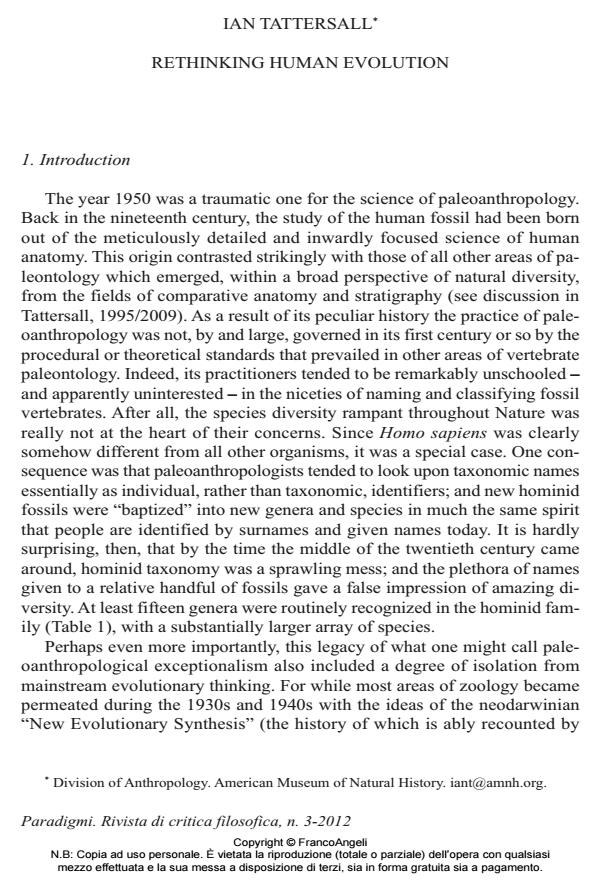Rethinking Human Evolution
Journal title PARADIGMI
Author/s Ian Tattersall
Publishing Year 2012 Issue 2012/3
Language Italian Pages 15 P. 11-25 File size 253 KB
DOI 10.3280/PARA2012-003002
DOI is like a bar code for intellectual property: to have more infomation
click here
Below, you can see the article first page
If you want to buy this article in PDF format, you can do it, following the instructions to buy download credits

FrancoAngeli is member of Publishers International Linking Association, Inc (PILA), a not-for-profit association which run the CrossRef service enabling links to and from online scholarly content.
Paleoanthropology came late to the New Evolutionary Synthesis, but when it did so it capitulated completely; so much so, that even fifty years later many practitioners have had difficulty adapting to newer paradigms of the evolutionary process. Minimalist interpretations of the human fossil record are still favored, with species such as Homo erectus being used in a hugely inclusionary sense to represent a "middle" stage in linear models of human evolution, whereas a rapidly growing human fossil record indicates high diversity among past hominid species. An examination of pattern in human evolution, where there is a great deal of stasis and behavioral and anatomical innovations occur out of phase, indicates that the species Homo sapiens is not the issue of a single gradually modifying lineage. Instead it is one single terminal twig on a luxuriant bush, and its unique cognitive qualities are better explained by a combination of exaptation and emergence than as a simple extrapolation of the trends that preceded it. Parole chiave: Emergenza, Esattamento, Evoluzione umana, Filogenesi, Processo evolutivo, Selezione naturale.
Keywords: Emergence, Evolutionary process, Exaptation, Human evolution, Natural selection, Phylogeny.
Ian Tattersall, Rethinking Human Evolution in "PARADIGMI" 3/2012, pp 11-25, DOI: 10.3280/PARA2012-003002